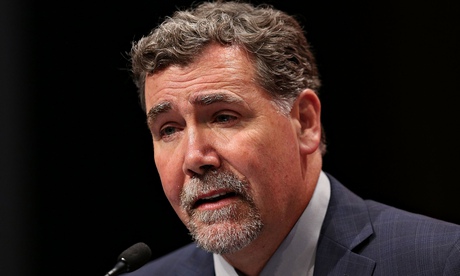
Sex work must be decriminalised if the world is to stand a chance of controlling the Aids pandemic, say scientists contributing to a series of research papers in the Lancet medical journal.
Sex workers, whether female, male or transgender, are subject to repression, violence and abuse even at the hands of those who are supposed to uphold the law, according to the series of seven research papers presented at the International Aids Conference in Melbourne, Australia.
Fear of the police and other authorities, as well as the abuse itself, prevents sex workers protecting themselves from HIV infection.
Studies in Canada, India and Kenya contain testimony from sex workers who report having condoms confiscated by police – who regard them as evidence of crimes – and being subjected to physical or sexual violence. Both the sex workers and their clients are put at risk of infection by this.
In Vancouver, one sex worker said the police "pick you up and make you do something for them just so you can stay there to work. And that's more or less their turf". Another said: "We still have to hide any condoms we have on site in case the police find them."
In Kenya, one sex worker said the police "found me on the street, took all my condoms and destroyed them", while another told of how the police "told me I was dirtying the town with condoms, and took all my condoms".
There is testimony in the papers of violence and sexual abuse carried out by police officers in other countries, too.
Governments and the police should uphold the human rights of all people, including sex workers, say the series authors.
Reducing sexual violence by clients and abusers could reduce HIV infection rates by around a fifth in both high- and low-income settings, they say, and getting more sex workers on antiretroviral treatment for HIV would reduce the amount of active virus in their bodies and cut the rate of new infections by a third.
But decriminalisation of sex work would be the preventative measure with the biggest impact, they say. Across all settings, it would reduce HIV infections by 33% to 46% over the next decade.
The Aids pandemic is becoming increasingly concentrated in marginalised communities which are harder to reach. They are often people who live on the fringes of their own societies, including drug users and men who have sex with men, as well as sex workers.
"Efforts to improve HIV prevention and treatment by and for people who sell sex can no longer be seen as peripheral to the achievement of universal access to HIV services and to eventual control of the pandemic," said Prof Chris Beyrer, director of the Johns Hopkins Centre for Public Health and Human Rights in the US, who coordinated the series.
"We must do better, and we can," Beyrer added.
Together, the series of papers is a call to governments to decriminalise sex work, say Lancet editor Richard Horton and senior executive editor Pamela Das in a commentary. "There is no alternative if we wish to reduce the environment of risk faced by women, men and transgender people worldwide.
"We might prefer to think that sex and money were unrelated, that sex was somehow immune from the transactions so common elsewhere in our lives. But why should this exception be so? And why should we condemn and criminalise the exchange of money for sex, especially if the severely adverse conditions we create for such exchange hurt women and men, and often fatally so?
"Sex work is part of the human story. Accepting and embracing sex work – supporting those engaged in sex work to protect their health and bodily integrity and autonomy – should be our humane, as well as our pragmatic, approach to the reality of our human lives. And to our common efforts to defeat Aids."

